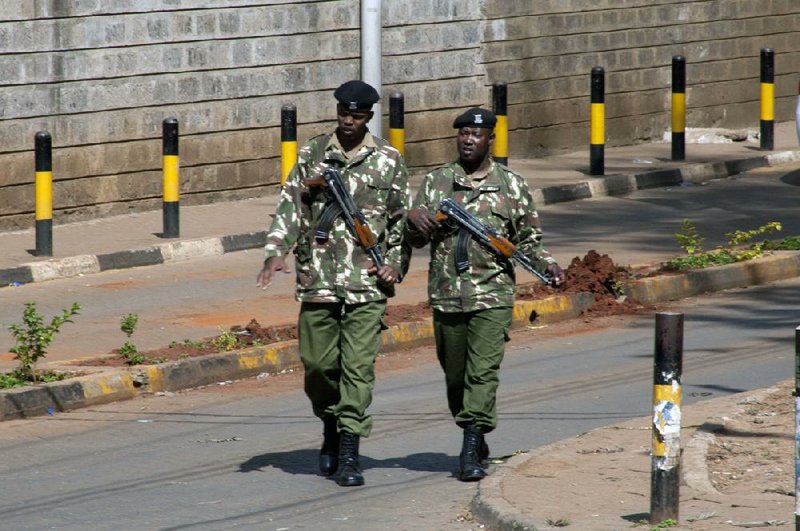NAIROBI, Kenya - Kenya on Saturday criticized a decision by the United States to reissue a travel advisory for the country in the wake of the deadly attack on an upscale mall in the capital of Nairobi, highlighting fears that the assault could hurt the East African nation’s lucrative tourism industry.
The U.S. State Department released an updated advisory Friday that made specific reference to the Sept. 21 terrorist attack on the Westgate Mall in Nairobi that left at least 67 people dead, including several foreigners. Five Americans were injured in the attack, according to the State Department.
The advisory, which contained similar wording to one issued in June, warned Americans to take caution in light of ongoing terrorist threats and the high rate of violent crime in some areas.
It noted that U.S. authorities continue to receive information about “potential terrorist threats aimed at U.S., Western, and Kenyan interests in Kenya, including in the Nairobi area and in the coastal city of Mombasa.”
Kenya’s Ministry of Foreign Affairs on Saturday condemned the U.S. decision to issue the statement, saying it was “unnecessary and uncalled for.” It urged Washington to withdraw the advisory.
“Terrorism, such as in the attack on Westgate Mall, is a global problem. The United States itself, has suffered terror attacks before, and so have other countries right across the globe,” the ministry said. “Issuing travel advisories … is not what we expect of our friends.”
The militant group al-Shabab has said it carried out the mall attack to punish Kenya for sending its troops into neighboring Somalia to fight the al-Qaida-linked militant group that had seized large parts of that country for years before being dislodged from the capital, Mogadishu.
Kenya’s tourism industry is one of the country’s largest sources of foreign currency. Authorities are sensitive to anything that could keep visitors away from its Indian Ocean beaches and safaris of game parks teeming with giraffes, zebras and other wild animals.
About 1.8 million tourists visited Kenya in 2011, primarily from Europe and the United States, according to the Kenya National Bureau of Statistics.
Kenya has protested U.S. travel notices before. In June 2012, it criticized an American advisory warning of an imminent terror attack on the coastal town of Mombasa as “economic sabotage.”
On Saturday at Nairobi’s Junction shopping center, many residents were thinking about the Sept. 21 attack.
“I don’t want to be here,” said a young woman walking past a Junction wine bar with a friend. “I only came because I had to.”
The Junction is far from empty, but it’s not crowded either, and many people say they are on guard.
“We’re all looking around, and not at ease,” said the woman, who asked to be identified only by her first name, Malesi.
The government has released almost no information about the attack, and Malesi and her friend mentioned the rumors spreading through the city.
“Like many Kenyans, I’m a bit frustrated. The government isn’t giving us much information. They’re controlling the information,” said Makena Onjerika, 26, a market researcher and blogger who recently wrote a blog post asking what happened to the hostages thought to be held inside the mall.
Some fear the mixed messages are making a difficult, tragic situation worse.
“Can someone explain to me how are the terrorists not getting emboldened by our confusion?” Ory Okolloh, who goes by the Twitter handle @ kenyapundit, tweeted Saturday.
The uncertainty was clear for first responders, too. The Kenyan Red Cross last week identified “increased public anxiety on account of missing persons” and “inadequate information flow” among its biggest challenges.
Information for this article was contributed by Adam Schreck and Tim Sullivan of The Associated Press.
Front Section, Pages 14 on 09/29/2013

